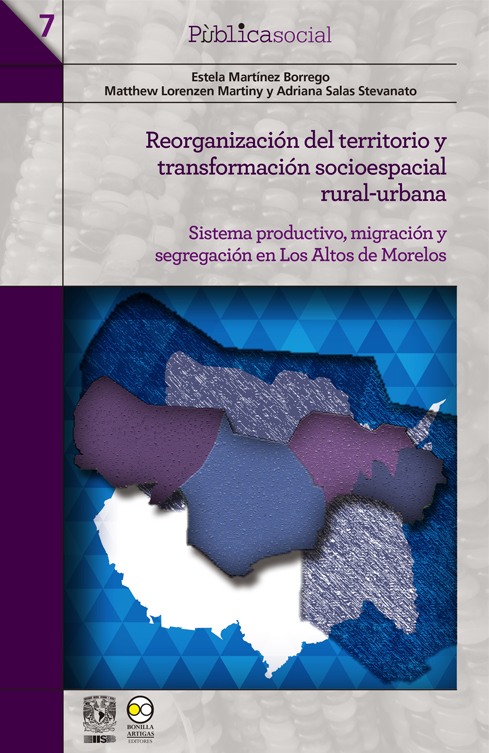Libros relacionados


|
Título: Engaging The Future (Book) | |
| Autor: Hopkins, Lewis D. And Marisa A. Zapata | Precio: $770.00 | |
| Editorial: Lincoln Institute | Año: 2007 | |
| Tema: Urbanismo, Planeacion | Edición: 1ª | |
| Sinopsis | ISBN: 9781558441705 | |
| Engaging the future successfully will require the active participation of planners, community leaders, and many individuals, as well as the contributions of students and scholars of planning. To shape any number of possible futures, we must imagine them in advance and understand how they might emerge. Forecasts, scenarios, plans, and projects are four ways of representing, manipulating, and assessing ideas about the future. The chapters in this richly illustrated volume offer a variety of tools and examples for planners in situations where they are positioned to advocate for a new kind of planning_one that allows communities to face uncertain and malleable futures with continuous and deliberative planning activities.
This book evolved from various threads and discussions among the editors, Lewis D. Hopkins and Marisa A. Zapata, and several chapter authors around changing methods of planning analysis. They sought to examine a more complex view of planning practice, acknowledging recent arguments from academic planners that seemed to undermine the usefulness of plans, but arguing that plans were still useful in particular ways. The Lincoln Institute sponsored a symposium in September 2005 at which both experienced planning practitioners and planning academics worked to advance this conversation in ways of interest to both audiences. Presentations and discussions at the symposium led to significant reframing of these ideas toward the form in which they are presented in this volume. In addition to the chapters describing different approaches to and uses of forecasts, scenarios, plans, and projects, the editors include a glossary of planning terms and an introduction, "How to Read This Book," to help the intended range of readers_planning students, seasoned practitioners, activist public participants, and specialized planning academics_find numerous ways to engage the ideas presented. The editors seek to encourage these audiences to read and reread chapters in different combinations, obtaining different lessons or ideas each time. The intention in such continuing, multiple, and deliberative readings is to model the innovative planning practices described throughout the book. Contents 1. Engaging the Future: Tools for Effective Planning Practices, Lewis D. Hopkins and Marisa A. Zapata 2. The Use of Forecasts in Creating and Adopting Visions for Regional Growth, Terry Moore 3. Vision, Planning, and Democracy, Jill Grant 4. Promoting the Community Future in the Contest with Present Individualism, Dowell Myers 5. Using a Scenario Approach: From Business to Regional Futures, Erik Smith 6. Using Scenarios to Make Urban Plans, Uri Avin 7. Using Scenarios to Build Planning Capacity, Stacy A. Harwood 8. How We Use Planning: Planning Cultures and Images of Futures, Michael Neuman 9. Forecasting to Learn How the World Can Work, Andrew M. Isserman 10. Deliberating About the Future, Richard E. Klosterman 11. Developing and Using Scenarios, Brian Deal and Varkki George Pallathucheril 12. Engaging the Public through Narrative-Based Scenarios, Richard Cummings 13. Person-Oriented Narratives: Extensions on Scenario Planning for Multicultural and Multivocal Communities, Marisa A. Zapata 14. Using Plans and Plan Making Processes: Deliberation and Representations of Plans, Lewis D. Hopkins 15. Engaging the Future More Effectively: A Model Request for Proposals, Lewis D. Hopkins and Marisa A. Zapata About the Editors Lewis D. Hopkins is a professor and former head of the Department of Urban and Regional Planning at the University of Illinois at Urbana-Champaign. He has served as editor of the Journal of Planning Education and Research and chair of the Planning Accreditation Board, and was a Fulbright Senior Scholar in Nepal. He currently is a member of the Urbana Planning Commission. His B.A. in architecture, Master of Regional Planning, and Ph.D. in city planning are from the University of Pennsylvania. Marisa A. Zapata is in the Ph.D. program in urban and regional planning at the University of Illinois at Urbana-Champaign, where she completed her Master of Urban Planning in 2004. She formerly worked for Congressman Charles B. Rangel in Washington, DC, and completed her B.A. in anthropology at Rice University. |
||
Librería Bonilla SA de CV © Todos los derechos reservados. 2019
Última actualización: Jul 2019






